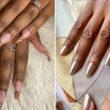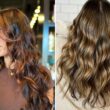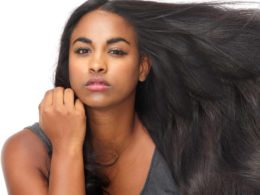.The hair is a very important part of humans beauty and waking up to find your hair falling out like crazy can be really frustrating and annoying, 100 strands a day can be normal but when you start seeing wads of them on your pillow and while combing through it then there should be a cause for concern.
Hair loss is considered a shift in normal hair pattern, basically referred to as alopecia especially if the scalp is not scarred.
Alopecia is a disruption in the body cycle of hair production, there are different reasons though that could have led to rapid hair loss. It is easily one of the most common illnesses that cause hair loss.
Table of Contents
- My Hair is Falling Out Like Crazy, What Do I Do?
- How can I stop my hair falling out?
- What should we eat to reduce hair fall immediately?
- FAQ
- Can shampoo make your hair fall out?
- How much hair falling out is normal?
- Does drinking water reduce hair fall?
- How often should you wash your hair?
- Is brushing hair bad for hair loss?
- Does wet hair fall out?
- Does coconut oil help hair grow?
- Can hair loss be a sign of something serious?
- Why is my hair falling out when I wash it?
- What should we eat to reduce hair fall immediately?
Unexplained hair loss can be worrying, your hair falling out might be attached to a medical condition and sometimes might just be a natural cosmetic reaction depending on whether they damage the hair follicle or happen progressively over time.
If you noticed your hair is falling out at a very fast rate, here are possible causes and what you can do to curb it.
My Hair is Falling Out Like Crazy, What Do I Do?
As stated earlier, hair loss is a result of a change in hair cycle production and some of these reasons are listed below.
1. Zinc And Iron Deficiency

Zinc and iron are the most important nutrients link to the hair (1), messing with your diet plan might not be a good idea especially if you are skipping meals or following a strict vegetarian diet not so carefully. Eating a balanced diet and taking vitamin supplements might be a good place to start getting some iron and zinc into your system.
What Do I Do About Zinc and Iron Deficiency?
Zinc and iron should be included in your diet and a change in diet should be carefully evaluated, your doctor or dermatologist should do a test to help determine the level of supplements needed to prevent your hair from falling out. Some vegetarian or vegan foods might be included in your diet as they contain lots of vitamins and iron.
2. Thyroid Issues
Research has shown that 60% of humans are affected with thyroid and are not aware, thyroid hormone is common among women, thyroid level needs to be balanced and when it is not, the bodily functions reduce and when this happens hair loss can’t be avoided. Thyroid might be non-scarring though but still a cause for concern.
What Do I Do Thyroid Issues And Hair Loss?
A blood test by your doctor will help discover this and your doctor might suggest some medications like
- Rogaine (Minoxidil): This is a topical solution that is applied to the scalp; it is available without a prescription (2).
- Propecia (Finasteride): This is a prescription drug taken in pill form that is used mostly to treat male pattern baldness and it cannot be used by women who are pregnant or considering pregnancy.
3. Telogen Effluvium
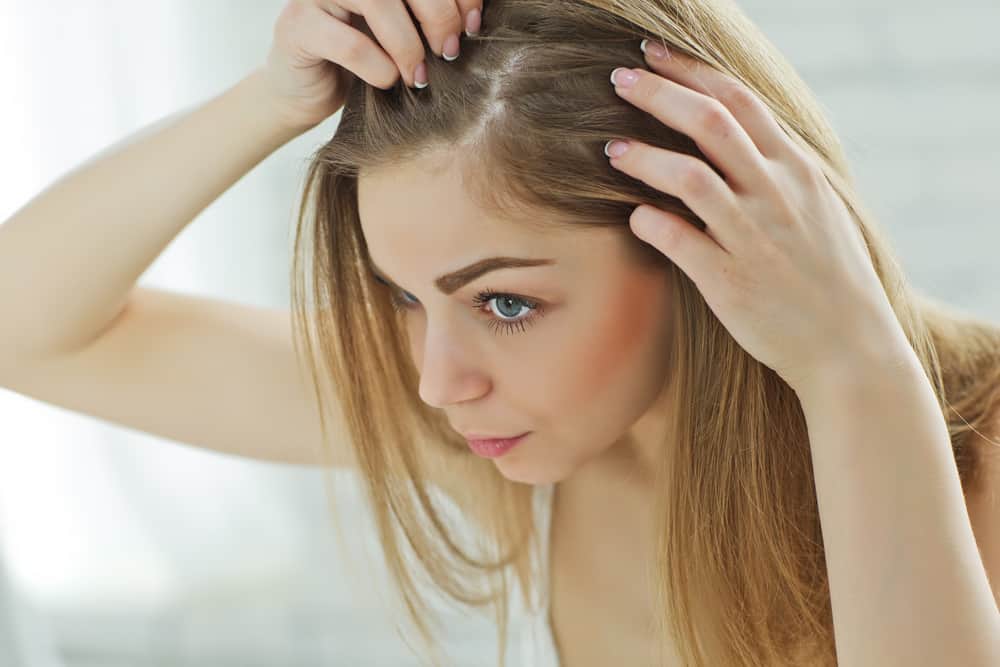
Telogen effluvium is the resting stage for hair and there are lots of causes for it but the most likely to have caused it is extreme stress, it causes the hair to shift to the final stage. Telogen effluvium can take place within 3 weeks to six months after a major trauma like surgery (4), the hair might grow back eventually but requires patience and time.
What Do I Do Telogen Effluvium?
In most cases of telogen effluvium there is usually no treatment for it, it just sheds itself and grows back after the stressful phase is over.
4. Genetics
Understanding the logic behind how genetics affect hair loss can be a bit complicated but it does happen. It is true that genetics can play a role in hair loss but it’s not common in all cases and other factors might be responsible for it. Balding does occur more frequent among men than women (5).
What Do I Do About Genetics And Hair Loss Issues?
Just like telogen effluvium, genetics can’t be changed but some hair treatments might be available to help grow your hair back. If there is a case of baldness in either of your parents or family history, then it’s more likely you will go bald.
5. Styling Your Hair Too Tight
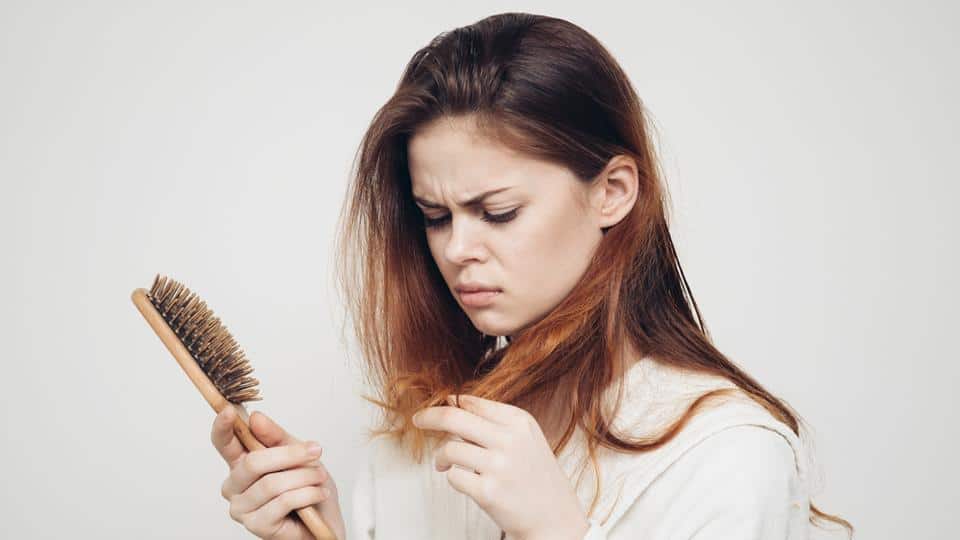
Some women do have healthy hair but become weak after a while due to the wrong styling, tight braids and bun also contribute a lot to this, braiding it regularly also weakens the scalp, giving in to the rapid breakage. This mostly happens with braids.
What Do I Do This?
Hair loss from heat styling and regular braids are not from the roots but the shaft, staying away from tight braids and heat styling might be advised. Use of fewer hair chemicals will also be a good way to grow your hair back and stop it from falling out.
6. New Medications
Changing or going off your medication can easily lead to hair loss, this process incenses your hormonal and causes some certain change to your body which also causes your hair to switch into a shedding mode. Birth control pills are more likely to cause hair loss in women who are sensitive to the hormones in the pill (6).
What Do I Do About Hair Loss And New Medications?
You should speak to your doctor or dermatologist about this, a better medication might be suggested.
7. Dandruff or Scalp Psoriasis
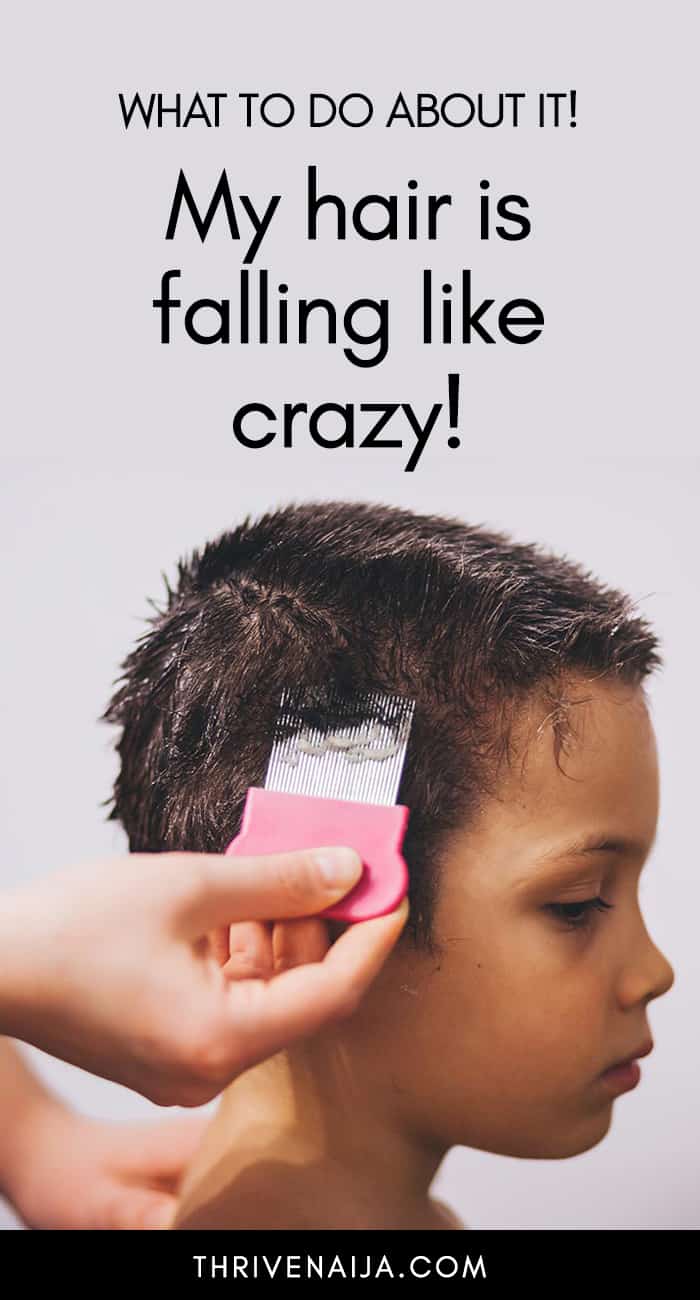
Dandruff is one of the easiest hair infections to cause hair loss, it scratches a lot and during this period causes serious hair loss. Dandruff or scalp psoriasis is caused by a yeast-like fungus that irritates the scalp thereby leading to alopecia (7). These hair infections are caused by not washing the hair thoroughly which causes oil and bacteria to build up.
What Do I Do Dandruff or scalp psoriasis?
Wash your hair thoroughly and with less chemical formulated shampoos, there are lots of natural hair treatments for dandruff and scalp psoriasis you can use as well.
How can I stop my hair falling out?
It’s hard not to notice how those luscious locks of hair keep falling off and sometimes, it’s from an uncontrollable reason but mostly it comes from how you treat your scalp. Hair breakage is more of a cosmetic concern than a healthy one. Here are some simple yet amazing ways you can stop your hair from falling out.
- You need to avoid hairstyles that pull on your hairline, tight braids, cornrows and ponytails are doing more harm than good to your hair, it weakens the tresses.
- Make use of hair products targeted to restore hair growths but not too chemically processed, the natural products help improve blood circulation to the scalp and destroy bacteria that are causing hair breakage and loss.
- Consume more foods high in vitamins and minerals such as iron, zinc, and vitamin B12, they can play a big role in restoring hair growth.
- Find a way to make scalp massage part of your hair care regimen, scalp massage is best for improving circulation to the scalp.
- Essential oils are natural and consist of lots of benefits, make use of it sparingly even for scalp massage. Oil such as carrot seed, pomegranate oil, avocado oil, rosemary, lavender, and many other oil essentials.
- Studies and reviews have shown that most hair loss usually grows back within a space of 3 months, a proper test should be conducted if that does not happen. Treatments for hair loss are becoming more advanced every year to identify the cause of your hair loss first and seek the best possible treatment.
What should we eat to reduce hair fall immediately?
There are many reasons associated with hair loss but one vital way to get it back on track is your diet, what you eat plays an important role in your hair growth. A proper diet can reverse hair loss and make your hair thicker and healthier. Here are some of the nutrients packed foods to reduce hair fall immediately.
FAQ
Can shampoo make your hair fall out?
Using the proper shampoo for your hair won’t cause it to fall out. Cleansing your hair and scalp with mild shampoo won’t cause hair loss but it is important that you check out for any chemical products that can cause hair loss.
How much hair falling out is normal?
Shedding 50 to 80 hair strands a day is considered normal however when the body sheds significantly more of this in a day then it is excessive shedding.
Does drinking water reduce hair fall?
Water hydrates the hair cell and this can help reduce hair loss. Water can help your hair stay healthy and in place and with proper hydration, you can keep your hair healthy and away from hair loss.
How often should you wash your hair?
There is no specific recommendation on often you can wash your hair as this depends on hair type. Washing once a week if you have a healthy scalp is fine but you should wash more often if the hair is oily or dirty.
Is brushing hair bad for hair loss?
Yes! Brushing your hair might not be good if your hair is falling out. Excessive combing of thinning hair strains your scalp and this could lead to more breakage. So, it’s recommended to brush your hair twice daily, in the morning and at night.
Does wet hair fall out?
Hair is more elastic when it’s wet hence it’s doesn’t fall out more when it’s wet. However, weak hair sheds faster when it’s wet and it’s stimulated by combing or massaging of the scalp.
Does coconut oil help hair grow?
Coconut oil contains vitamins and fatty acids that help your hair grow stronger and longer. Coconut oil may penetrate the cuticle of your hair and help reduce damages that can be caused by environmental factors.
Can hair loss be a sign of something serious?
Hair loss is often related to signs of aging but it could also be a sign of a serious medical condition that needs to be evaluated by a doctor.
Why is my hair falling out when I wash it?
If you notice hair thinning or falling out while washing, this often occurs as a result of stress, after an illness or weight loss. If clumps of hair come out when you shower, this is likely due to telogen effluvium and it causes hair to fall out easily.
What should we eat to reduce hair fall immediately?
Factors like age and genetics can’t change experiencing hair fall but diet helps you have control over it. Foods for hair loss include Fatty fish, eggs, leafy greens, nuts, seeds, and fruit.
Read more on hair loss and hair growth:
- 5 Foods That Support Rapid Hair Growth In Women
- 13 Vegetarian Foods For Hair Growth
- 17 Foods to Eat For Fast Hair Growth And Thickness
- The 10 Best Products for Hairline Growth 2019 (Reviewed)
- 8 Illnesses That Cause Hair Loss, Based On Research
And if after all these, your hair keeps falling like crazy, please go see your dermatologist or trichologist.


